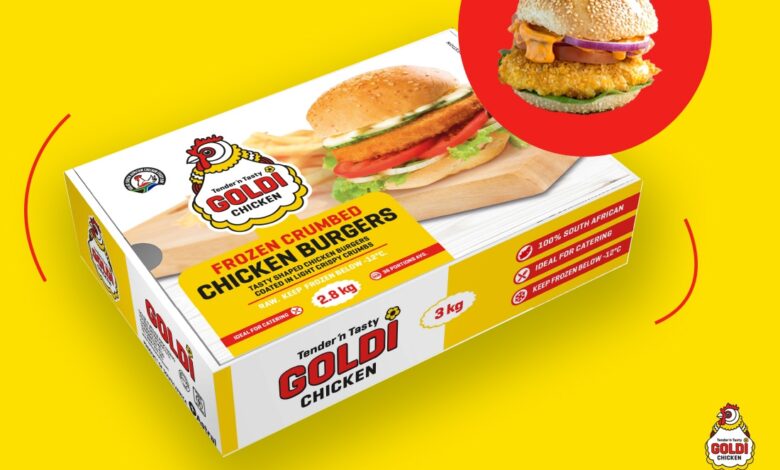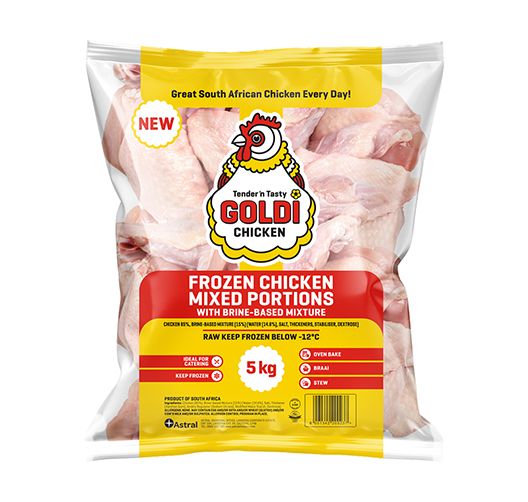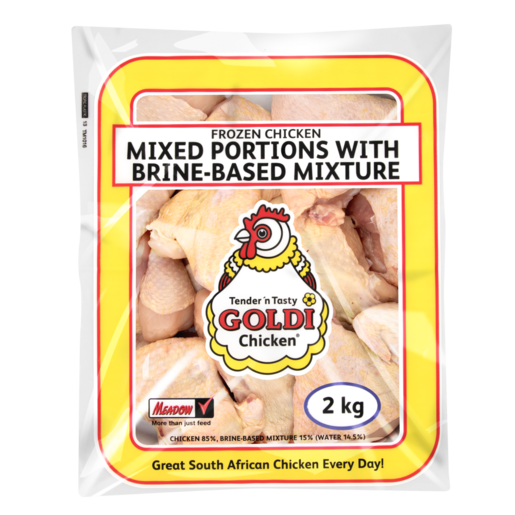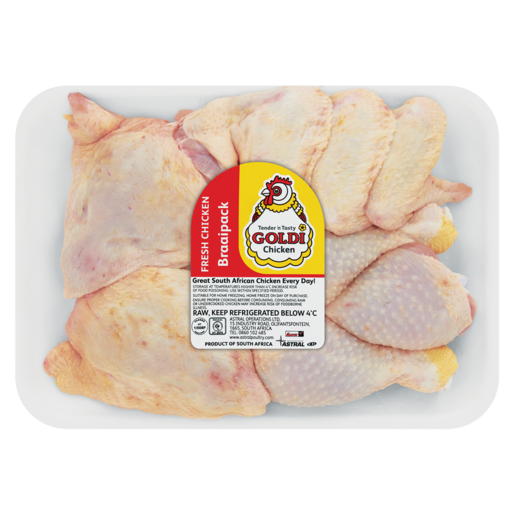Goldi Chicken: From Standerton Roots to a South African Staple

Goldi Chicken: From Standerton Roots to a South African Staple. In the heart of Mpumalanga, South Africa, the town of Standerton gave rise to a brand that would become synonymous with quality poultry: Goldi Chicken. As a division of Astral Operations Limited, Goldi has navigated the complexities of the South African poultry industry to establish itself as a household name.
Foundations of Quality and Integration
Goldi’s success is deeply rooted in its commitment to quality and an integrated production model. Operating three abattoirs in Standerton, Camperdown, and Olifantsfontein, along with numerous chicken farms, Goldi ensures control over the entire production process—from hatchery to processing. This vertical integration allows for consistent product quality and supply chain efficiency.

Strategic Product Diversification
Understanding the evolving needs of consumers, Goldi has continually expanded its product offerings. In 2024, the brand introduced new pack sizes (480g and 500g) for its crumbed chicken range, catering to smaller households and promoting convenience. Additionally, Astral Foods, Goldi’s parent company, explored the potential of canned chicken products to compete with popular canned fish options, indicating a proactive approach to market trends.
Navigating Industry Challenges
The South African poultry industry has faced significant hurdles, including increased imports, rising feed costs, and infrastructural challenges like load shedding. Goldi, under Astral Foods, has addressed these issues by investing in technology and infrastructure to mitigate the impact of power outages and by advocating for fair trade practices to protect local producers from the adverse effects of imported poultry products.

Commitment to Sustainability
Goldi has also demonstrated a commitment to environmental sustainability. The company has implemented composting initiatives to manage organic waste from its operations, converting waste into valuable compost products. This approach not only addresses waste management concerns but also contributes to environmental conservation efforts.
Lessons for Aspiring Entrepreneurs
- Vertical Integration: Controlling multiple stages of the production process can lead to improved quality control and operational efficiency.
- Market Responsiveness: Adapting product offerings to meet changing consumer needs is crucial for sustained relevance and competitiveness.
- Proactive Challenge Management: Anticipating industry challenges and investing in solutions can safeguard a company’s market position.
- Sustainable Practices: Implementing environmentally friendly practices can enhance a brand’s reputation and contribute to long-term viability.

Goldi Chicken’s journey from a regional producer to a national brand exemplifies the importance of strategic planning, adaptability, and a commitment to quality. Aspiring entrepreneurs can draw inspiration from Goldi’s approach to overcoming industry challenges and meeting consumer demands.


